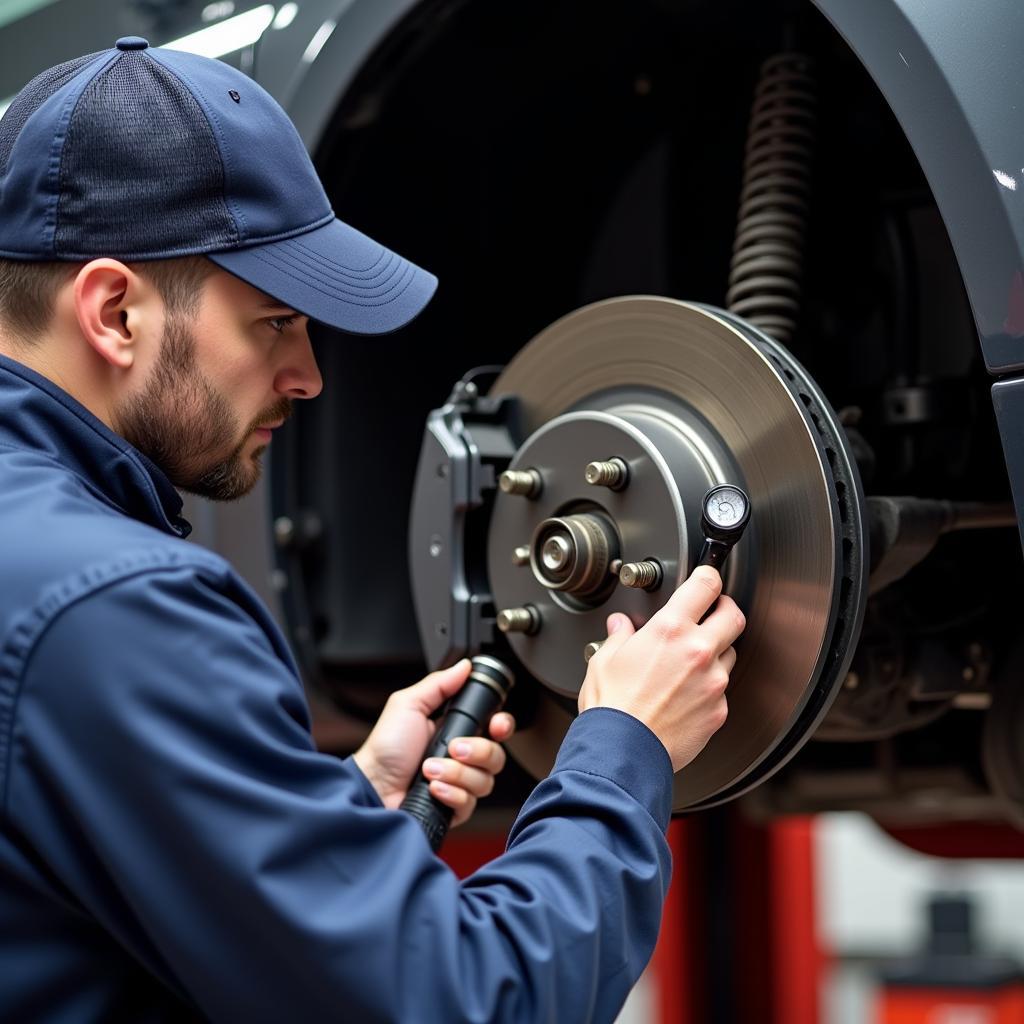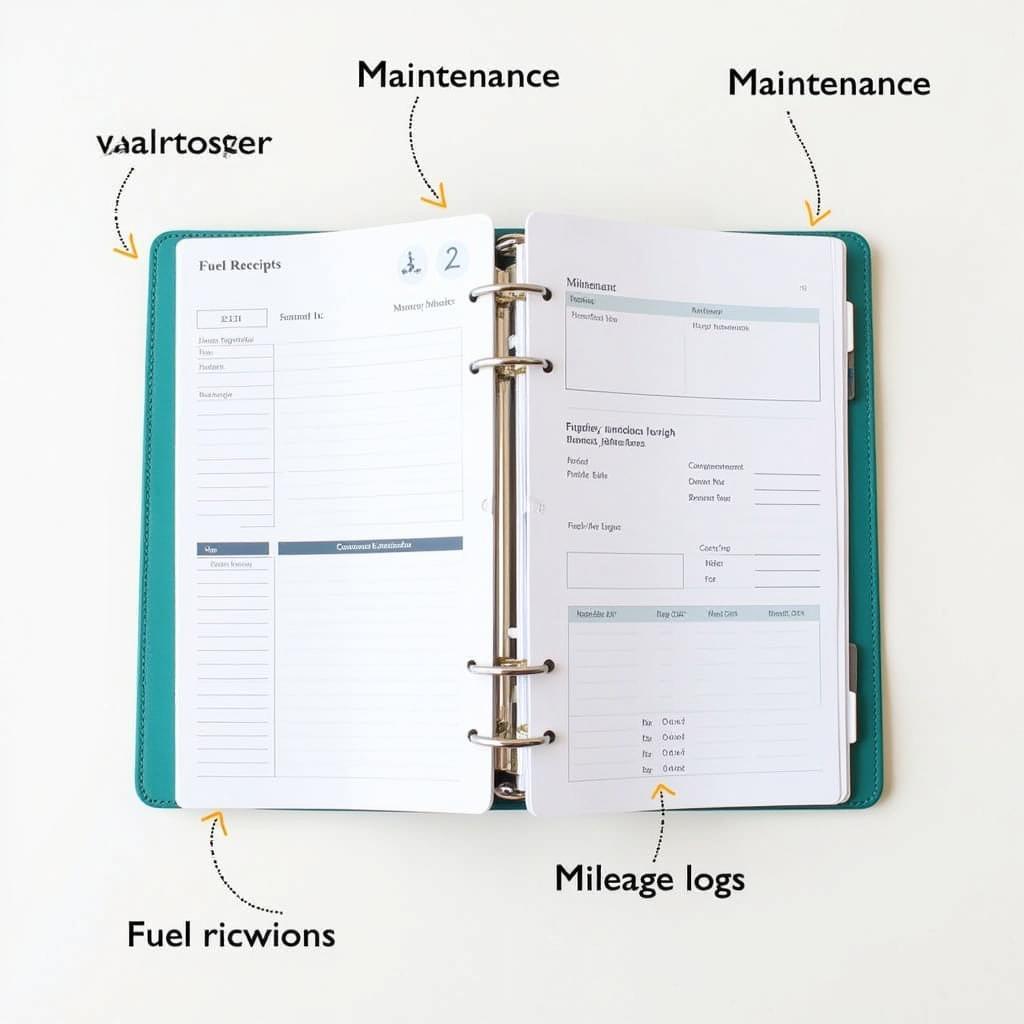Knowing when your car needs maintenance is crucial for its longevity, performance, and your safety. Ignoring necessary upkeep can lead to costly repairs down the line and potentially dangerous driving conditions. This comprehensive guide will equip you with the knowledge to recognize the signs your car needs attention, empowering you to address issues proactively.
A well-maintained car is a happy car. And a happy car means a happy driver. So, let’s dive into the telltale signs that your vehicle is asking for a little TLC. Want a convenient way to track your maintenance? Check out the car maintenance app apple.
Warning Lights: Your Car’s Cry for Help
Modern cars are equipped with a sophisticated system of warning lights designed to alert you to potential problems. Ignoring these illuminated messengers is like ignoring a flashing neon sign that says “Trouble Ahead!” While some lights indicate minor issues, others signify serious problems requiring immediate attention.
Understanding the Dashboard Symphony
The check engine light is perhaps the most notorious and often misunderstood warning light. While it can indicate a range of issues, from a loose gas cap to a failing catalytic converter, it’s essential to have it checked by a qualified mechanic. Other crucial warning lights include the oil pressure light, brake warning light, and battery light. Each light corresponds to a specific system in your car, providing valuable clues about its health.
Strange Sounds: Listen to Your Car Talk
Your car communicates through more than just warning lights; it speaks to you through a variety of sounds. Unusual noises can indicate developing problems that require attention. Pay attention to any new or unusual sounds emanating from your vehicle.
Deciphering the Automotive Orchestra
A squealing sound when braking could indicate worn brake pads, while a grinding noise might suggest more severe brake issues. A knocking sound from the engine could signify a problem with the bearings or other internal components. Similarly, a rumbling noise from the exhaust system could indicate a hole in the muffler or a damaged catalytic converter.
 Mechanic Inspecting Car Brakes
Mechanic Inspecting Car Brakes
Thinking of handling your own maintenance? Compare the pros and cons with a car maintenance dealership vs comparison.
Fluid Levels: The Life Blood of Your Vehicle
Just like your body relies on essential fluids to function properly, so does your car. Regularly checking and maintaining proper fluid levels is critical for optimal performance and preventing damage.
Checking the Vital Signs
Engine oil, coolant, brake fluid, power steering fluid, and transmission fluid are all essential for the smooth operation of your vehicle. Low fluid levels can lead to overheating, decreased performance, and even catastrophic engine failure. Consult your owner’s manual for the proper procedure and recommended intervals for checking and topping off fluids.
Performance Issues: When Your Car Feels Sluggish
Changes in your car’s performance, such as decreased fuel efficiency, sluggish acceleration, or difficulty starting, can be indicators of underlying maintenance needs. Don’t dismiss these symptoms as mere inconveniences; they could be signs of more serious issues brewing.
Diagnosing the Sluggishness
A drop in fuel economy could be caused by a variety of factors, from a dirty air filter to a malfunctioning oxygen sensor. Difficulty starting could indicate a failing battery, starter motor, or alternator. Sluggish acceleration might point to problems with the fuel system, ignition system, or transmission. Addressing these issues promptly can prevent further damage and restore your car’s performance.
Need a plan to keep track of everything? A car service maintenance plan is a great option. A handy car maintenance monitoring app can also help.
Regular Maintenance Schedule: The Proactive Approach
Following the recommended maintenance schedule outlined in your owner’s manual is the best way to keep your car running smoothly and avoid costly repairs. Regular maintenance includes oil changes, tire rotations, brake inspections, and other essential services.
Sticking to the Plan
Adhering to a regular maintenance schedule is like giving your car regular checkups at the doctor. It allows mechanics to identify and address potential problems before they become major headaches. This proactive approach not only saves you money in the long run but also ensures the safety and reliability of your vehicle. For instance, a 2009 lincoln town car maintenance schedule can be readily found online.
Conclusion
Knowing when your car needs maintenance is essential for its longevity, performance, and your safety. By paying attention to warning lights, strange sounds, fluid levels, and performance issues, you can proactively address potential problems and keep your car running smoothly. Remember, regular maintenance is the key to a happy and healthy vehicle.
We encourage you to connect with us at AutoTipPro for further assistance. Our team of automotive experts is ready to answer your questions and provide personalized guidance. Contact us at +1 (641) 206-8880 or visit our office at 500 N St Mary’s St, San Antonio, TX 78205, United States.






Leave a Reply